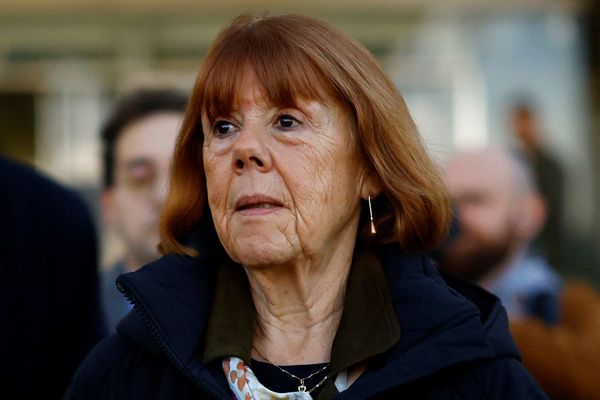
When Iman Abdikarim joined a Telegram group to help Ukrainian refugees on a whim earlier this week, it had only 17 members and only vague ideas of what it might do.
By Friday morning, the masters student was directing a chaotic throng of arrivals inside Berlin’s main station, as Germany’s “welcome culture” returned to the foreground. The Telegram group now has almost 8,000 volunteers and is central to efforts to provide refugees with temporary accommodation, food and clothes.
“I’ve been working 10 hours every day this week, and I’ve got to work shifts at the clinic at night,” said the 27-year-old with Somali roots in an upbeat tone. “But we are learning what the people who come here need.”

Her mobile phone buzzes every few seconds with new messages, some of them from Ukraine, others from more Berliners who want to help. Behind her back, another volunteer coordinator shouts into a megaphone: “If you speak Russian or Ukrainian, stay. If you don’t, please come back tonight.”
Scenes at Berlin’s central station mirror those from the summer of 2015, when large parts of German civic society rallied to aid asylum seekers arriving from Syria.
In terms of sheer numbers, however, the challenge is starker: at the height of the influx of arrivals in 2015 and 2016, authorities in Berlin had to coordinate shelter for about 700 people and struggled, temporarily repurposing sports halls. This Thursday alone, 6,500 refugees arrived in the city by train, according to Berlin’s senator for social affairs.
In each of the previous two days more than 1,000 people have arrived. Operator Deutsche Bahn, which has been handing out free travel tickets to refugees from Ukraine, says it has doubled its number of direct trains to the Polish border.
“We have to prepare for the fact that the largest movement of refugees since the end of the second world war is headed for Europe,” said senator Katja Kipping. “What we have seen so far is only the tip of the iceberg.”
The hope in Germany’s administrative apparatus is that relaxed visa rules will avoid bottleneck situations: since 2017, Ukrainians with biometric passports have been able to travel to the Schengen zone and stay for 90 days out of every 180 without needing a visa.

Sixteen-year-old Viktor Levchenko arrived at Berlin central station on Friday morning, with his mother and cousin, having left Kyiv 48 hours before. Carrying a backpack each and a paper bag with basic supplies such as flour, toilet rolls and soap given to them by volunteers, they waited on the cold ground floor of the station for a Berlin-based Ukrainian friend to pick them up and host them for a few days.
“We are working out what to do,” Levchenko said. “For now, we must stay in Germany. But afterwards, we must go back.”
After arriving in Berlin, they called his aunt and uncle who had stayed behind in Kyiv to serve in the military. As they were speaking over the phone, they could hear air-raid sirens in the background.
Even before Vladimir Putin’s army started its incursion on to Ukrainian soil last week, asylum applications in Germany had risen to a four-year high in 2021, following a drop during the first year of the pandemic. As shelters in the capital were close to full capacity at the start of the year, the senate proposed renting empty hotels and hostels on an ad hoc basis.
On Friday, Kipping said the city was planning to erect a tent outside the central station that would provide temporary resting places and sanitary facilities to those arriving from Ukraine before they were transported by shuttle buses to shelters in Berlin or nearby cities like Leipzig.
But until now, the brunt of the aid effort has been facilitated by volunteers, such as Mirjam König, who was waiting by the side of arrival point at Hauptbahnhof with her toddler son on her arm. A cardboard sign rested on the buggy next to her, saying: “One room for woman with 1/2 children.”
König said she had posted her offer of a room on a volunteering website three days earlier but did not get a response. “Maybe it’s more practical this way,” she said, while bouncing her son in her arms. “I wanted to exhaust all my options.”
“If something like this happened to me, I would hope there will be people offering me their help too. When injustice happens on this Earth, you want to do something about it.”







